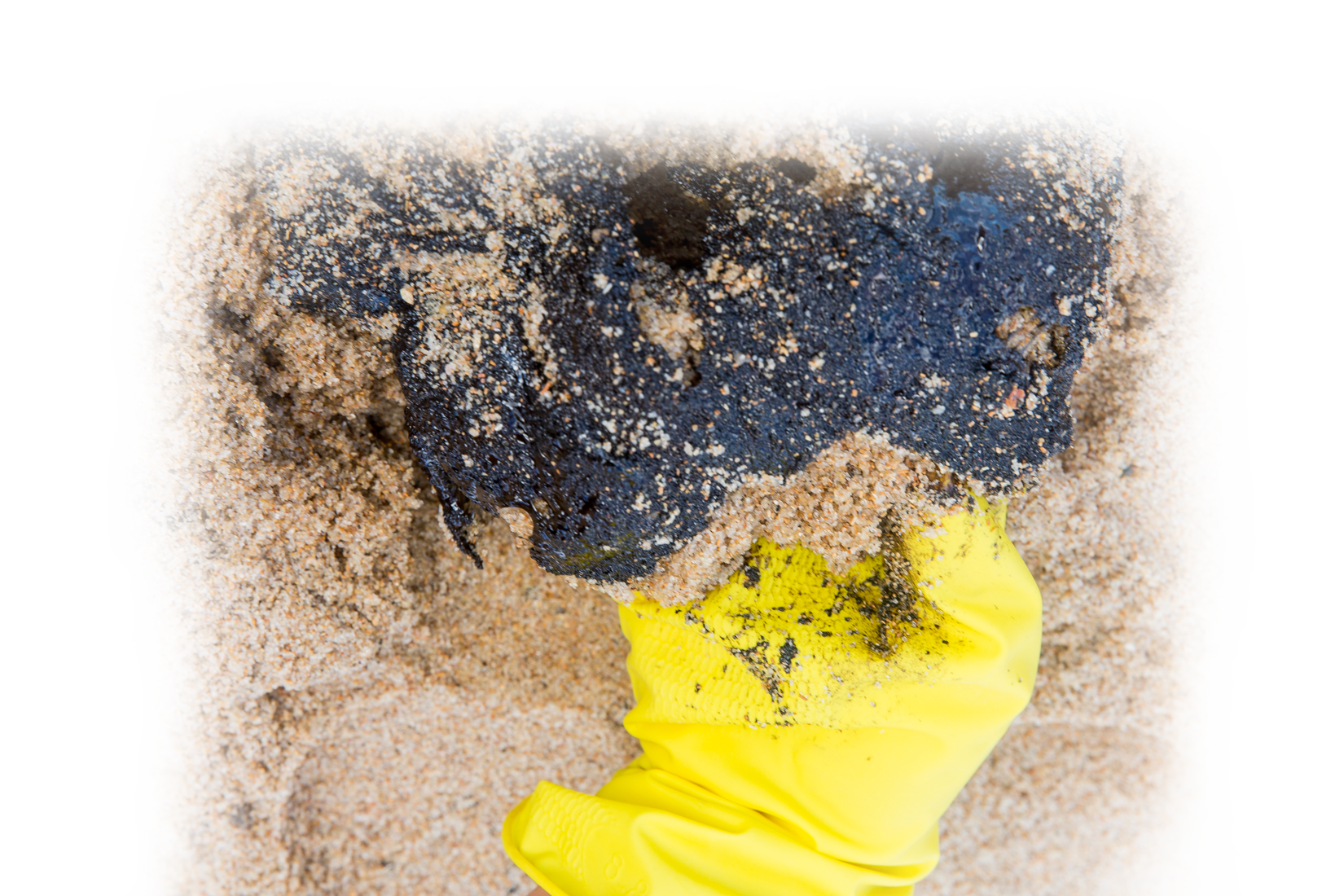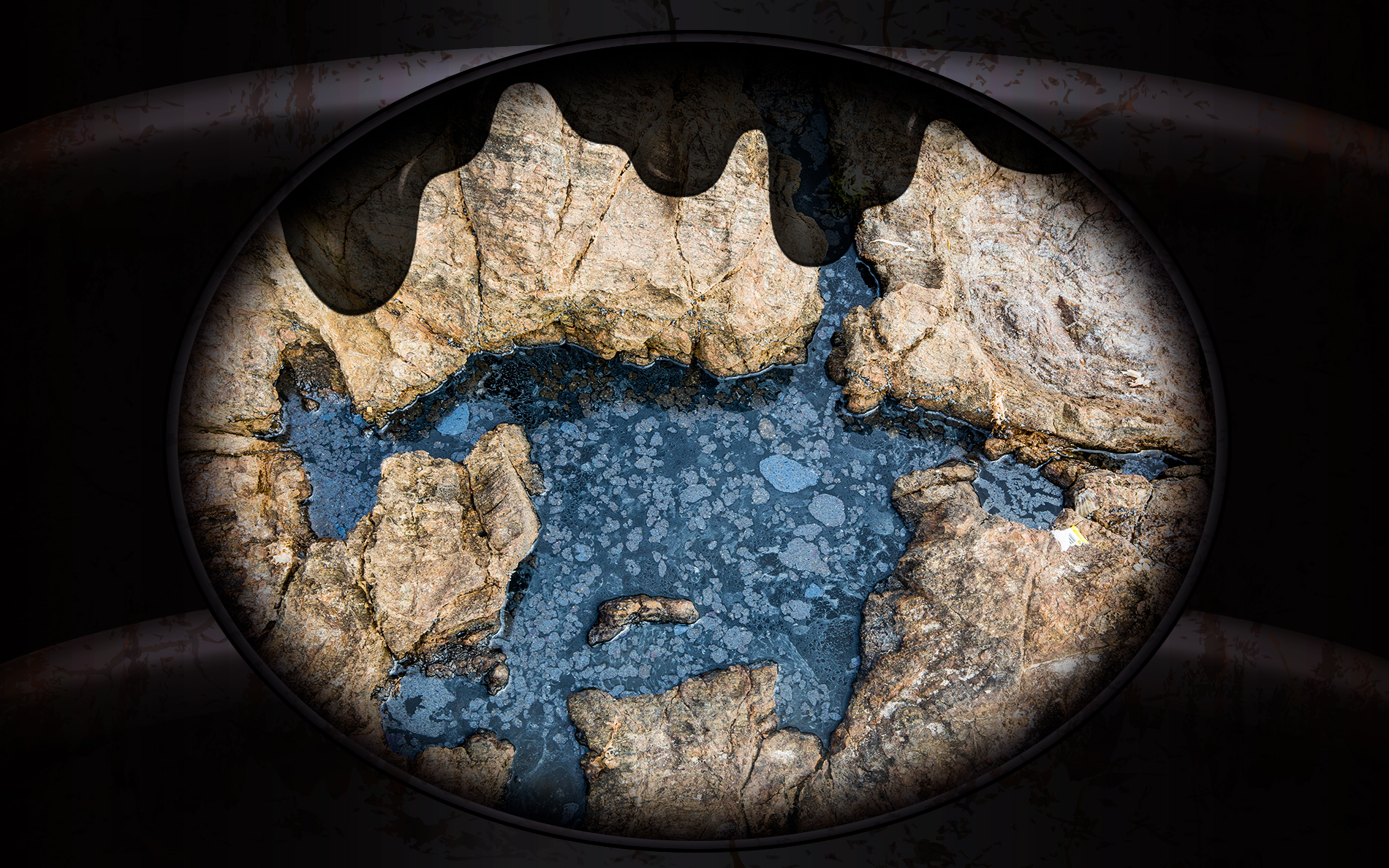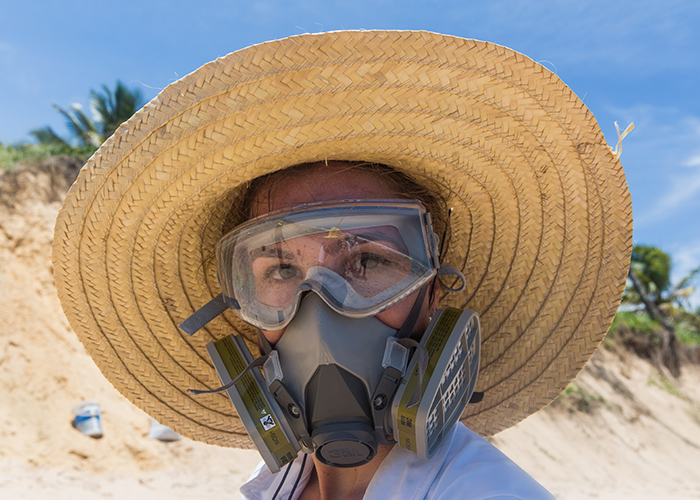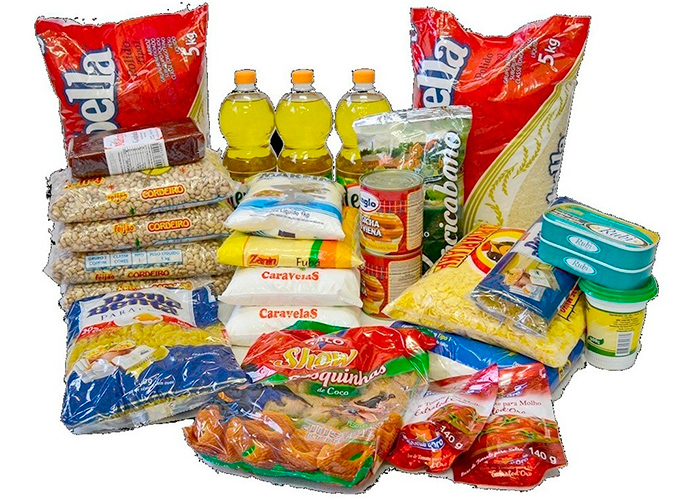Vakinha (crowdfunding) for Southern Bahia
Crude oil began to wash up on the coast of the Brazilian state of Bahia in the middle of October and is contaminating areas of inestimable importance to maintaining the region’s biodiversity and the scenic beauty vital to the local tourism industry. The damage so far has been immeasurable, and the medium and long-term repercussions of this tragedy are still unknown, as it constitutes one of the worst environmental, economic and social disasters ever to hit the Brazilian coast.
Due to a lack of adequate technical assistance and knowledge, many local residents, fishermen and fisherwomen, mangrove harvesters, volunteers, and members of the local municipal governments are continuing to put themselves at risk during efforts to clean the contaminated areas, such as beaches, mangrove forests, reefs, tidal wetlands, estuaries and natural coral pools, all of which they depend on directly or indirectly for survival.
Crude oil, also known as petroleum, is a complex mixture of chemical compounds that includes polycyclic aromatic hydrocarbons (PAHs). The toxicological risks of exposure are severe and can lead to the development of acute and chronic illnesses, some of which can be fatal. The most toxic compounds include benzene, toluene, and xylene. Benzene, for example, can cause fetal malformations, as well as serious and potentially fatal health conditions, such as cancer and marrow aplasia. When such toxic components mix into ocean water, they contaminate wildlife habitats, are absorbed into living tissue and incorporate into the food chain, threatening the local marine life’s ability to reproduce and survive, including species that are essential to the region’s economy. Furthermore, hundreds of people in the region who fish and harvest shellfish for a living or work in tourism depend on these ecosystems for their livelihood.
The destruction suffered by the local ecosystems is incalculable and, on the social level, constitutes a public health emergency: the many people from the local populations who are volunteering for the clean-up efforts do not have access to adequate personal protective equipment (PPE). Hundreds of people are already showing signs of oil intoxication and, if measures to provide them assistance are not taken, many will not have access to the medical care they require.
The oil has not stopped coming. We don’t know where all of it is or where it’s going. There’s no way to estimate how much will continue to come or for how long. Volunteers are working tirelessly to clean it, and the lack of adequate PPEs is exposing them to serious health risks. Clean-up efforts are seriously lacking the equipment needed for containing the oil slicks to keep them from spreading to the mangrove forests, estuaries, and other sensitive areas that have not yet been contaminated. They are also lacking equipment for cleaning and monitoring the many areas that already have been contaminated, and for storing and transporting the oil residue that is being removed. There are also not enough resources and facilities for rescuing, housing, caring for, providing emergency aid to, and decontaminating animals who have been exposed to the oil.
Mangrove forests have traditionally been the basis of the productive activities of many communities in Southern Bahia. For these communities, especially the fishing and mangrove harvesting communities, who rely on fishing and shellfish harvesting for their livelihood, these ecosystems are their main, and sometimes, only source of food and income. Most of these communities are lacking in basic sanitation infrastructure, and the public electric power grid has only recently been established in the region. The main source of water for these communities is natural wells, which are being threatened by development. In various of the quilombola communities (traditional communities of decedents of escaped slaves) living among the mangrove forests, fresh water suitable for human consumption and agriculture is practically nonexistent.
The affected populations are already facing a number of difficulties. Harvesting food from the mangrove forests and estuaries, which, until now, has provided locals with a certain amount of food independence, is no longer safe, and misinformation from the federal government regarding this issue is exacerbating the risk of people eating contaminated food. Thousands of people have lost their livelihoods for an undetermined amount of time due to residual oil contamination, the extent of which has yet to be evaluated, and they have no other means of survival.
Given these circumstances, it is crucial to support efforts to provide the victims with alternative means of food security.
Due to the gravity of this situation, the Brazilian Association to Combat Ocean Litter (ABLM), in partnership with the São Paulo Climate Coalition, and the São Paulo Municipal Public Servants Union (Sindsep) are joining forces to provide aid to these communities in Southern Bahia and are requesting:
- - Donations to purchase Personal Protection Equipment (PPE) for the volunteers carrying out the cleanup efforts so they have protection against the health risks of exposure to the toxic oil, along with other equipment and materials for collecting the oil and protecting non-contaminated areas (eco-barriers) from exposure to the toxic elements of the oil, which continues to threaten coastal environments and estuaries;
- - Donations of food and personal hygiene items to help provide for the basic needs of the families dependent on fishing and shellfish harvesting who will not receive advance payments from the federal fishing insurance program (a program that provides benefits to independent fishing households whose activities are interrupted by measures required to protect marine life);
- - Donations of traditional or native seeds (which are more resistant to the elements and don’t require the use of agrochemicals) for the microregional organization of a sustainable agriculture system that will provide a medium and long-term alternative source of food security to the fishing and mangrove harvesting communities of Southern Bahia affected by the oil spill, as, until now, their only source of food security has been the ocean, which is no longer viable for them;
- - Donations for the construction of cisterns to supply fresh water to the communities whose natural sources have been contaminated by the oil;
- - Donations to set up first response points and actions for marine life exposed to the oil, maintain the base for stabilization, treatment, and rehabilitation of marine animals, and support sea turtle guardians who will monitor spawning areas on the Maraú Peninsula and the surrounding areas; and
- - Donations to fund logistic, transportation, and relocation operations, as well as to cover the cost of any required third-party services.
Note: The region of Southern Bahia that will receive the aid goes from the municipality of Valença to that of Maraú. Its population is primarily composed of members of traditional fishing and mangrove harvesting communities (75%), such as the communities of Garapuá and Batateira in Cairu, Graciosa, in Taperoá, Pau d’Óleo, in Igrapiúna, and Imbilina and Tanque, in Maraú.
GOALS
- Acquisition of personal protective equipment: 250 kits
- Acquisition of materials for removing and transporting oil and for preventing the contamination of mangrove forests and estuaries (eco-barriers): 10 kits
- Acquisition of materials for protection against sun and oil exposure: 250 kits
- Acquisition of items for providing food security to the local traditional communities that depend on fishing and harvesting the local mangrove forests and estuaries: 500 baskets of a variety of seeds
- Acquisition of equipment and products to provide veterinary care to wildlife exposed to the oil: 4 kits
- Acquisition of materials for the construction of cisterns: 100 kits
- Period of activities covered by requested funding: 3 months
Total estimated cost for reaching goals: 387,000 Brazilian reals
BUDGET SPREADSHEET
PPES FOR CLEANUP OPERATIONS
OPERATIONS INVOLVING BOATS
ANIMAL STABILIZATION BASE KIT
FIRST AID KIT
ANALYSIS, RECOVERY AND REMEDIATION
Collection points for material donations:
- Santo Dias Park: Rua Jasmim da Beirada, 71 - Capão Redondo, São Paulo - SP, CEP 05868-580
- Matilha Cultural: R. Rêgo Freitas, 542 - República, São Paulo - SP, CEP 01220-010
- São Paulo Municipal Public Administration and Government Agency Labor Union: Rua da Quitanda, 101, Centro, São Paulo-SP, CEP 01012-010
All monetary, material, and equipment donations will be initially administered by teams from the São Paulo Climate Coalition, ABLM (in São Paulo and Bahia), and Sindisep, who will deliver and distribute them to local leaders of the Costa do Dendê (Palm Coast) region of Bahia, which includes a number of coastal municipalities, beginning with the islands of Tinharé and Boipeba, in Cairu, and the Maraú peninsula. There local members of ABLM and partner organizations will facilitate the management and distribution of the donations—a full accounting of which will be made public—ensuring that all donations go toward the objectives for which they are requested and that the process is conducted in a transparent manner.
ABLM’s Tax Registration Code (CNPJ): 19.557.738/0001-82
Bank: 290 - PagSeguro Internet S.A
Agência: 0001
Account number: 09873230-8 / Type: payment account
Vakinha Virtual (crowdfunding site): http://vaka.me/795449
Accounting records will be made publicly available online via the social network pages of ABLM and partner organizations.
We need a lot of love, science, and all the help we can get to minimize the damage and continue our efforts to protect LIVES, NATURE, and the INDEPENDENCE OF THE PEOPLES OF THE SEA!




